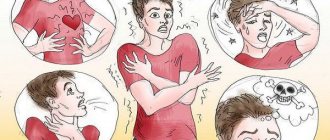Depression is a very common mental disorder today, the causes and symptoms of which are well studied and described. There are also effective methods of treating it. Severe types of this disease - suicidal depression (obsessive idea to commit suicide) and bipolar (severe mood swings, obsessive thoughts, inflated self-esteem, etc.) must be dealt with by specialists in the field of psychiatry. For other types of depression, there are methods that complement professional help, and sometimes replace it, that give the answer to how to get out of depression on your own. These are depressions:
- seasonal;
- adynamic (weakness, decreased performance, fatigue);
- anxious (feeling of anxiety);
- hormonal, one of the subtypes of which is postpartum;
- tearful (constant desire to cry);
- anesthetic (loss of emotions);
- dysphoric (groundless irritability, attacks of anger and malice);
- ironic (difficult to define, as it is characterized by fun and excessive talkativeness, making fun of others) and others.
Content:
- Depression: what is it?
- How do you know if you are depressed? Common symptoms of depression
- Forms and causes of depression
- Is there a difference between male and female depression?
- How is depression expressed in women?
- How is depression expressed in men?
Additional risk factors
Among the factors that increase the risk of depression are biological (fertility, heredity), characteristics of interpersonal interaction and specific personal characteristics. In addition, if a woman is exposed to increased stress for a long time or is a single mother, this further increases her chances of developing symptoms of depression.
Additional risks include:
- Family experience of mood disorders.
- The presence of a mood disorder in a woman in adolescence or early youth.
- Loss of a parent in childhood.
- Loss of family, friendly support or threat thereof.
- Intense or prolonged psycho-emotional stress (possibly dismissal, problematic interpersonal relationships, separation or divorce).
- Violence experienced in childhood or recently: physical and/or sexual.
- Certain medications.
In addition, some are susceptible to developing postpartum depression, as well as so-called seasonal affective disorder, depending on the time of year.
Depression: what is it?
Depression can be described in dozens of ways, using professional and clinical terms, statistics, artistic comparisons, and the patient's point of view.
William Styron (novels “Get Dark,” “Sophie’s Choice”), who had the opportunity to experience the dark sides of the disease, said well about depression: “In severe depression, the suffering is completely unimaginable for someone who has never experienced it. They sometimes kill because they are unbearable.”
Depression does not choose between rich and poor, unknown and famous. The paintings of Vrubel and Filonov, Van Gogh and Picasso are painted with alarming shades. Acute emotions can be heard in the music of Beethoven, Schumann, Tchaikovsky, Bach.
Depression is a disease that takes away the joy of life and makes people childishly defenseless. At least that's how patients describe it. “I don’t feel anything, I get up in the morning and don’t know what to do with myself. And if I start things, I can’t finish them. I cry for any reason. “I have absolutely no strength,” says the young woman.
Depression is a timeless and age-independent disease. This is a mental storm that covers, taking away strength and desire to act. The size of this storm is frightening. In the world, according to various estimates, up to 350 million people . The World Health Organization (WHO) reports that in 2021, depression came in second place after cardiovascular diseases.
Prevention of depression
To avoid the development of depression, you must follow the following recommendations:
- Properly distribute workload and rest. Sleep should be full for at least eight hours.
- Maintain a daily routine. The day is for being awake and the night is for resting.
- Proper nutritious nutrition will strengthen the body.
- Lead a healthy lifestyle. To feel good, you need to play sports, you can just go jogging every morning.
- Avoid stressful situations.
You should try to find interesting hobbies that bring joy and satisfaction. Positive emotions are the main prevention against depression.
How do you know if you are depressed?
The line between “normal” sadness and depression as a disease is unclear, but there are symptoms that distinguish one from the other. Depression is a loss of interest in what is happening. A person functions in a slow rhythm, looks at the world gloomily and pessimistically, sees the future only in dark colors.
Common symptoms of depression
The most commonly cited symptoms of depression are:
- Feelings of loneliness, indifference, sadness, or regret about something
- Feeling tired and losing energy
- Reluctance to communicate with other people, even with relatives and friends
- Lack of interest in daily activities and responsibilities
- Constant feeling of dissatisfaction, tearfulness
- Excessive agitation, irritability, uncontrollable attacks of aggression
- Loss of appetite and sleep, decreased libido, weight loss or gain
- Inexplicable feelings of guilt, a sense of worthlessness of existence, helplessness, hopelessness, anxious and suicidal thoughts.
A diagnosis is the first response to signs of depression. The disease is diagnosed if at least four symptoms appear simultaneously and persist for at least two weeks.
Forms and causes of depression
The spectrum of depression is as wide as the number of patients diagnosed. We talk about depression when someone experiences mood swings associated with the season (seasonal depression) or psychologically traumatic situations (psychogenic form). The cause may be a difficult event, for example, the loss of a loved one (endogenous form), or biochemical changes that occur in the body in case of illness (somatogenic form).
Is there a difference between male and female depression?
There is no conclusive evidence indicating that female and male depression are different forms. Symptoms may be the same in women and men. However, statistics show that gender largely determines susceptibility to depression.
There are social, psychological and biological differences between the sexes.
Social differences
Experts say that up to 65% of cases of male depression remain undetected. This is evidenced by the fact that men are less likely to seek therapeutic help. Largely because they are ashamed of the symptoms and prefer to get out of depression on their own. Therefore, compared to women, they more often fall into alcohol and drug addiction.
Psychological differences
Male and female brains differ in their approach to problem solving. Women explore the cause of a difficult situation, analyze the past and consider its aspects. Men take concrete actions to solve the problem. In a hopeless situation, they are much more likely to attempt suicide. Forensic experts estimate that up to 80% of suicide cases occur in men.
Biological differences
Biological factors, such as physical appearance or hormonal factors, may also influence the development of depression differently in men and women.
How is depression expressed in women?
Depression occurs twice as often in women as in men. This is due to gender characteristics, hormonal factors, psychological perception of reality and behavioral style.
Factors influencing female depression:
Family status
This is one of the most common risk factors. Single women are less likely to experience depression than married women, while the opposite is true for men. This is explained by the influence of social roles. It is worth noting that this phenomenon is almost never found in certain cultural circles, for example, in Mediterranean countries, where women's care of the home is traditionally valued.
Family relationships
The risk of developing depressive syndrome in women is associated not only with the fact of marriage, but also with the quality of family relationships, which is often influenced by difficulties interacting with a partner. Lack of intimacy, trust, and protracted family conflict cause stress, which deprives a woman of a source of support and reduces self-esteem.
Professional situation
Unemployment increases the risk of developing depression. It has been proven that work makes women resilient to negative life events. It organizes, develops activity, determination and a sense of control.
Thought processes
Gender differences in thinking styles also contribute to the development of depressive disorders. Women typically have lower self-esteem than men and respond to negative events by focusing more on themselves and their emotions than on actions. It is more difficult for them to independently distract themselves from disturbing thoughts and, thereby, improve their well-being.
Postpartum period
Another risk factor is the postpartum period. This is influenced by pain associated with childbirth, rapid hormonal changes, and changes in the body. The confrontation with a new social role and the need to mobilize strength to take care of the child also act as stress factors.
Menopause period
This period is characterized by isolated depressive syndromes. Women who previously suffered from depression, had severe premenstrual tension, and experienced severe postpartum symptoms are more likely to experience such symptoms.
How is depression expressed in men?
Men are generally more likely to achieve power and success than women. They do not like to admit weakness, so they are less likely to talk about their experiences.
Factors influencing male depression:
Partnerships
Research shows that the most common cause of depression in men is problems in their marriage or relationships. Arguments and quarrels cause men physical discomfort, so they try to avoid them. And if it doesn’t work out, they withdraw into themselves and cannot get out of depression.
Sex
Depression causes a man to lose interest in his own body and, as a result, in sex. Antidepressants against this background only worsen the situation. Sometimes there is an increase in libido as a way to improve mood.
Pregnancy and children
It has been found that one in ten men experience psychological problems when becoming a father. The need to devote more time to mother and child leads to fatigue and the inability to concentrate on work. Depression is aggravated if the partner is in a similar state, if the relationship is not going well, or if there are financial difficulties in the family.
Lack of work
Losing a job, no matter the reason, can be extremely stressful. Research shows that one in seven unemployed men becomes depressed within six months of losing their job.
Retirement
Reaching retirement age and retiring can be difficult for a man, especially when his partner is still working. It is difficult for him to independently adapt to new living conditions.
Temperament
Depression is often found in shy men who do not have permanent relationships, and who find it difficult to defend their rights and get settled in life.
Symptoms of mania in women include:
- Dominance of high spirits, previously not characteristic of a woman.
- Frequent irritability or intolerance.
- Low need for rest and sleep.
- Generating numerous big ideas.
- Increased need for communication.
- Jumpy formulation of thoughts.
- Excessive, previously unusual, physical activity, including sexual activity (increased libido).
- Noticeably increased overall energy level.
- Lack of judgment, which sometimes leads to undue risk and behavior.
- Inappropriate behavior in public.
Is it possible to overcome depression without the help of a doctor?
There is no medicine that is ideal for every patient. But this does not mean that there is no way out of depression.
To overcome depression, you need to acknowledge it. The disease reminds us that the dark side of reality is no less a part of our existence than its bright colorful sides. Depression can be an opportunity for mental and spiritual growth. However, if left untreated, the condition can develop into a serious mental illness.
Unfortunately, only 50% of patients undergo treatment. A person suffering from depression finds himself in a kind of vicious circle: the disease requires energy and will, which are absent. Therefore, people cannot always heal on their own by simply “pulling themselves together.”
Several treatment methods are used for depression. However, it is up to the doctor to decide what will be best in a particular case. In less severe cases, you can limit yourself to lifestyle changes. In difficult situations, pharmacology and psychotherapy come to the rescue. Severe depressive conditions require hospitalization. Treating depression is a long process. But when you see a doctor, 80-90% of patients recover.
Signs of mania
Bipolar disorder is characterized by the fact that mood can change sharply, occupying completely opposite poles - from mania to depression and vice versa every couple of days, weeks or months. In this case, mania is characterized by a highly energetic state and high spirits. But even if the state of mania may not cause concern due to its inherent positive symptoms, it requires immediate psychotherapeutic help, because at any time it can change to a completely opposite state.
How to cope with depression on your own: advice from a psychologist
If you really want to get out of depression, you can do it yourself. Moreover, if the patient himself does not take any actions aimed at recovery, then neither a psychologist nor a psychiatrist will help him.
How to act in different situations?
If depression is opposed to happiness, give yourself more happy moments.
Happiness in relationships
How to cope with depression if it is the result of a toxic relationship? It is worth trying to resolve misunderstandings and resolve conflicts. If this is not possible, try to limit contact with toxic people as much as possible. If you live under the same roof with such a person, do everything in your power to free yourself from a destructive relationship. If they are work-related, change your job, even if you have been working on it for many years. Work is no substitute for health.
Happiness in communication
On our planet, many creatures lead a solitary lifestyle. But we are a herd species, which means we need people to keep us mentally healthy and happy. Sometimes it only takes one person to get out of depression. His warm participation, acceptance and kindness work wonders. Don't isolate yourself. Find such a person around and establish a trusting relationship with him.
Happiness on a plate
Food affects how we feel. If your diet is based on unhealthy foods, your chances of getting out of depression are almost zero. Changing eating habits is difficult, but you can do it in small steps. Replace cola with water and natural juices, pizza with grain bread, sweets with fruits and nuts. Gradually you will turn nutrition into a healing diet. Beware of the temptation to drink alcohol. It will give temporary relief, but in fact, it will only worsen the condition.
Running for happiness
Just as there is no happiness without a healthy diet, there is no happiness without physical activity. You don't have to spend half a day at the gym. A short walk three times a week is enough to revitalize the body. The oxygenated brain produces endorphins - hormones of happiness. This is why runners feel euphoric after a run. All you need is vigorous exercise, preferably outdoors. Exercise for at least 30 minutes, 3-5 times a week.
Happiness in four paws
Pets help you get out of depression. It's hard to deny the calming power of a cat's purr. And interacting with dogs helps maintain mental health, reduces stress levels and increases self-esteem.
Thanks to an animal in the house, we focus on it and not on negative thoughts. Pets give warmth, unconditional love and joy, never judge and forgive everything. Therefore, their role in the treatment of depression remains undeniable.
Happiness is all around us
In a serious condition, we sometimes do not notice how cluttered the space around us is and how chaotic our lives are. Declare war on depression by doing a big housecleaning. Try to get rid of things you haven't used in over a year. Carry out similar cleaning in documents. Organizing an archive of papers, letters, photographs will give you a feeling of stability and control over your own life, and will definitely improve your mood.
Happiness in nature
When everyday life is full of worries and problems, nature gives us the strength to fight them. Fresh air, forest and sunbathing, trips to beautiful places have an amazing effect.
Green therapy helps you relax and reduces stress levels. Mental state improves gardening. In London there is Sydenham Park, where medicinal gardening sessions are held. “This is an oasis of peace. When you come here, the outside world ceases to exist for you,” says a woman who first came to the park as a patient and now works there as a volunteer. This is a great example for doing something useful in nature.
Learn more about how to cope with depression in our video:
How to help a loved one overcome depression?
If you have anyone in your family who is depressed, show your concern. The main thing is to see a doctor who will help establish a diagnosis and plan treatment. This must be done, if only because the patient himself often does not recognize the symptoms visible to others and is not able to perform such an activity on his own.
Treatment for depression is all about taking the time to release difficult emotions. Decreased motivation to perform daily tasks or socialize are the most common symptoms of the disease. Supporting a loved one is expressed in being close, not judging, showing empathy, and helping in everyday affairs.
Sometimes it's difficult. Nevertheless, try, because human health, and sometimes even life, is at stake. The important message is: “I’m here if you need help.”
What should you definitely not do?
As you already understand, depression is not the same as a bad mood. Depression is when a person does not want to live. When he wakes up and doesn't understand why. When he doesn’t care what he looks like, when he doesn’t have the strength or desire to perform the simplest actions.
Someone will say: “He’s just lazy.” Because this condition is often associated with laziness. The most destructive thing for people experiencing depression is misunderstanding. That’s why it’s so important not to use expressions that make a person feel even worse.
What statements should you avoid?
"You're exaggerating"
This means: “The problem is imaginary.” By saying that nothing special is happening, we make the other person feel guilty. We make it clear to him that reality simply needs to be revised, but he does not want to make any effort for this.
"Don't act like a child"
To behave like a child means not to be able to cope with difficulties on your own. Meanwhile, adults experience much more difficulties than children, who are not yet aware of them, and feel the problems much more strongly. They perceive irritating factors differently, they have different awareness and different emotions.
“Come on, you’ll figure it out”
You can deal with the mess in your room, not the mess in your shower. Depression is not like cutlery that can be laid out in a kitchen drawer. Realizing the disease, a person has to deal with a huge layer of problems, including problems from childhood. Even with the help of a psychotherapist, this process can last more than a year.
"Go to a party"
Activity for depression is recommended. But you're dealing with a person who has to fight himself just to get out of bed. Don't try to drag him out somewhere. Most likely, the matter will not go further than tying shoelaces. Meeting people is the last thing a person wants to do if they are feeling unwell. So respect his decision if he refuses to leave the house.
"Normal people don't have problems"
Meanwhile, it is normal to experience not always pleasant feelings. The situation in which a person finds himself and from which he wants to get out is normal. All you can do is help him with this. And if you don’t want to or can’t, don’t make it difficult for him.
"You don't have enough work"
It is naive to believe that depression can be overcome with a busy work schedule and willpower. Of course, work helps you not to think about bad things, at least temporarily. But it’s not enough to just get out of bed and find something to do to make the problem go away. At best, it will be delayed for an hour or two.
“Stop complaining and feeling sorry for yourself!”
Why not? Any person has the right to this. Problems, bad mood and well-being often cause the need to cry and complain. In this case, our duty is to stay with the person and listen to him patiently.
“Who has it easy now?”
You argue that a person has no right to feel bad because troubles and misfortunes happen to everyone. Thus, you deprive him of the right to his own experiences. You make him feel guilty because there are wars, hungry children and coronavirus in the world. But the point is not that it’s difficult for everyone now, but that it’s bad for him specifically.
“I can imagine how you feel now”
No, you have no idea. A person who has not experienced depression himself or been close to someone who has suffered from it usually does not understand what he is dealing with. Being angry at our boss or feeling tired is not the same as how someone suffering from depression feels.
"Don't do this, I can't look at you"
One of the most selfish messages. “I don’t care how you feel, I don’t care. And I feel bad looking at you” - this is what you convey to the person. At best, it means: “I feel sorry for you.” Think about whether these are the words you would like to hear in a similar situation?
Literature to help
To help better understand the nature of depressive disorders and their different shades, we have selected a few books that you will enjoy:
Andrey Kurpatov “Say NO to depression!”
A bestseller by a Russian practicing psychotherapist and TV presenter, in which he describes his professional experience in treating the disease and advises getting rid of it without medication.
Jon Kabat-Zinn "The Conscious Path Through Depression"
Psychiatrist Jon Kabat-Zinn talks about practices developed in the meditative tradition of Buddhism. Using meditation in therapy, he confirmed its effectiveness in treating depression.
Antoni Kempinski "Melancholia"
This is a book about depression, sadness and neurotic conditions that arise in the lives of people of different ages. Despite the fact that a Polish psychotherapist wrote it in the 70s of the last century, it is still relevant.
Michael Cunningham "The Clock"
The novel, which won the prestigious Pulitzer Prize, is overshadowed by the film adaptation starring Meryl Streep, Julianne Moore and Nicole Kidman. Meanwhile, the book version of The Hours delves even deeper into the recesses of the mind controlled by depression, presenting its different types. After all, everyone suffers from depression differently.
Robert Leahy "Beat Depression Before It Beats You"
A guide written by a practitioner and professor of clinical psychology and psychiatry. The author covers common problems caused by depression and explains how to solve them. This is a must-read for those who are experiencing symptoms of the disease and see no way out of it.
Matt Haig Falling in Love with Life. How to Learn to Live Again When You're Almost Destroyed by Depression"
The true story of the author - a man who survived a crisis, overcame depression, survived and learned to live again.
Loretta Breuning “Happiness Hormones. How to train your brain to produce serotonin, dopamine, endorphin and oxytocin"
Almost everything that makes us feel great is associated with one of the happiness hormones. The author, a clinical psychologist and researcher, suggests several ways to increase them. The book will teach you to experience happy thoughts and feelings, even when the world around you does not give you reasons to smile.
Depression is a serious chronic disease with a tendency to relapse. It will not go away on its own and therefore requires treatment. The sooner help comes, the greater the chances of recovery. It is important for a person who is faced with a problem to remember that life is precious, and he is not alone in life. With the support of doctors, family and friends, there is always hope that the disease can be overcome. This happens very often.











